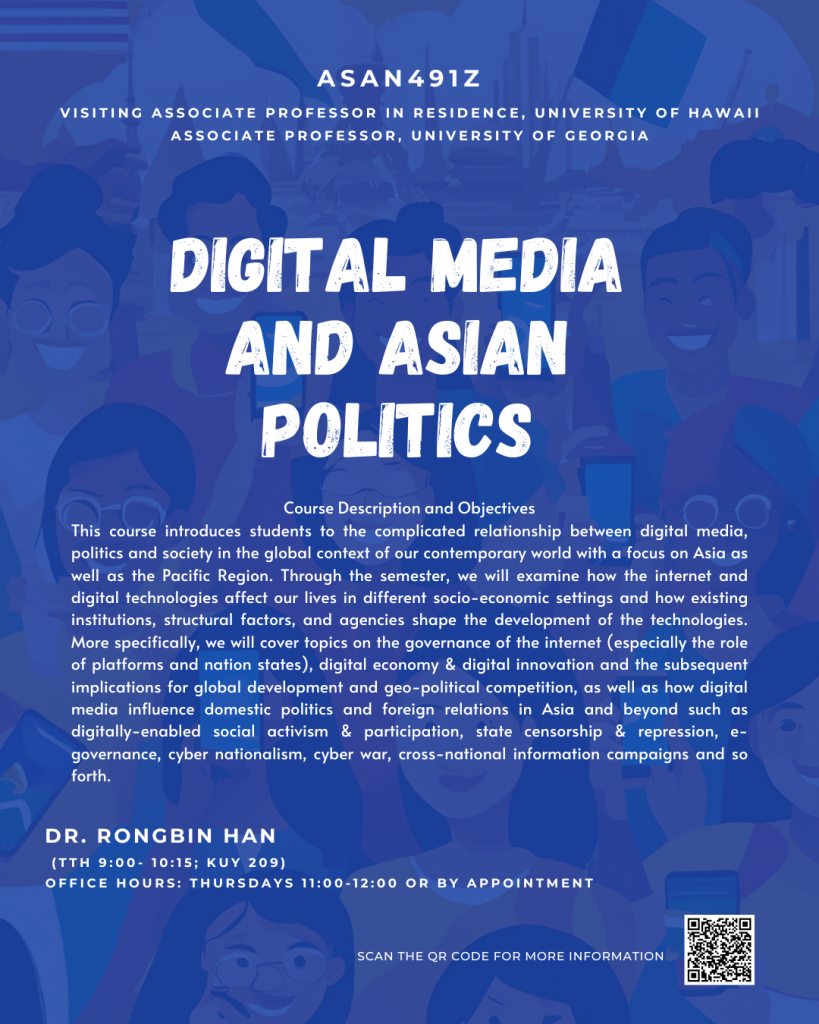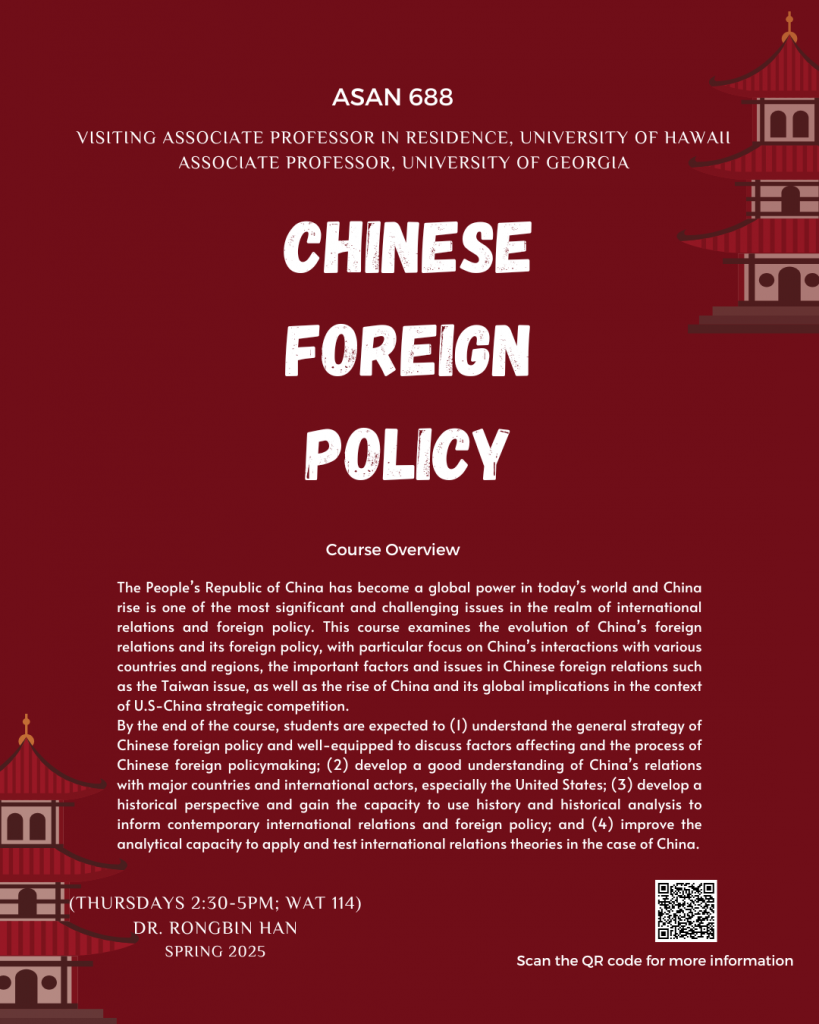The Asian Studies Department is excited to announce the opportunity for graduate-level scholars to submit…

Dr. Rongbin Han to join the Department of Asian Studies as a Visiting Associate Professor for Spring 2025
Rongbin Han is Associate Professor in the Department of International Affairs at the University of Georgia. He received his Ph.D. from the University of California, Berkeley in 2012. He is the author of Contesting Cyberspace in China: Online Expression and Authoritarian Resilience (Columbia University Press, 2018) and co-author of Directed Digital Dissidence in Autocracies: How China Wins Online (Oxford University Press, 2023). We are delighted to have this distinguished scholar with us for a semester.
Rongbin Han will be teaching two courses for the Department of Asian Studies during Spring 2025: the first course, available to undergraduate and graduate students, is Digital Media and Asian Politics (ASAN 491Z), Tuesday-Thursday 9:00-10:15am. The second, available to graduate students, is Chinese Foreign Policy (ASAN 688), Thursdays 2:30-5:00 pm. More details about the courses are below. Please register for these courses on STAR!

ASAN 491Z: Digital Media and Asian Politics
Dr. Rongbin Han
(Tuesdays/Thursdays, 9:00- 10:15; KUY 209)
Office Hours: Thursdays 11:00-12:00 or by Appointment
Course Description and Objectives
This course introduces students to the complicated relationship between digital media, politics and society in the global context of our contemporary world with a focus on Asia as well as the Pacific Region. Through the semester, we will examine how the internet and digital technologies affect our lives in different socio-economic settings and how existing institutions, structural factors, and agencies shape the development of the technologies. More specifically, we will cover topics on the governance of the internet (especially the role of platforms and nation states), digital economy & digital innovation and the subsequent implications for global development and geo-political competition, as well as how digital media influence domestic politics and foreign relations in Asia and beyond such as digitally-enabled social activism & participation, state censorship & repression, e-governance, cyber nationalism, cyber war, cross-national information campaigns and so forth.

ASAN 688 Chinese Foreign Policy 1
(Thursdays 2:30-5pm; WAT 114)
Dr. Rongbin Han
Visiting Associate Professor in Residence, University of Hawaii
Associate Professor, University of Georgia
Course Overview
The People’s Republic of China has become a global power in today’s world and China rise is
one of the most significant and challenging issues in the realm of international relations and
foreign policy. This course examines the evolution of China’s foreign relations and its foreign
policy, with particular focus on China’s interactions with various countries and regions, the
important factors and issues in Chinese foreign relations such as the Taiwan issue, as well as the rise of China and its global implications in the context of U.S-China strategic competition.
By the end of the course, students are expected to (1) understand the general strategy of Chinese foreign policy and well-equipped to discuss factors affecting and the process of Chinese foreign policymaking; (2) develop a good understanding of China’s relations with major countries and international actors, especially the United States; (3) develop a historical perspective and gain the capacity to use history and historical analysis to inform contemporary international relations and foreign policy; and (4) improve the analytical capacity to apply and test international relations theories in the case of China.





